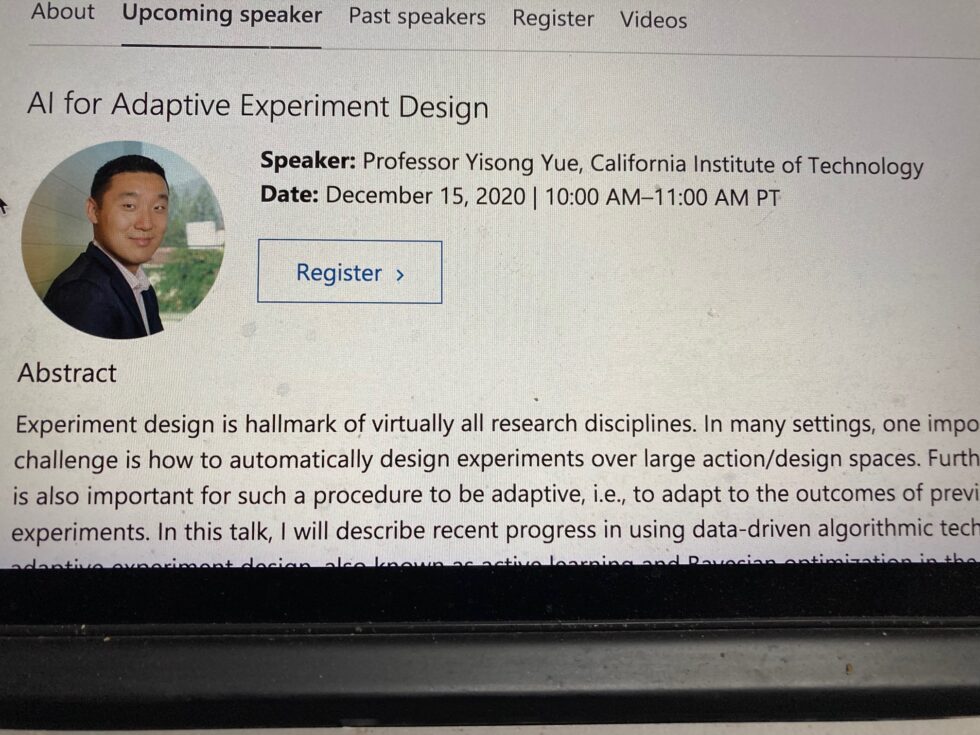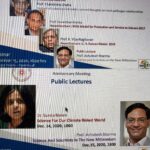
AI for Adaptive Experiment Design:- Register
Abstract
Experiment design is hallmark of virtually all research disciplines. In many settings, one important challenge is how to automatically design experiments over large action/design spaces. Furthermore, it is also important for such a procedure to be adaptive, i.e., to adapt to the outcomes of previous experiments. In this talk, I will describe recent progress in using data-driven algorithmic techniques for adaptive experiment design, also known as active learning and Bayesian optimization in the machine learning community. Building upon the Gaussian process (GP) framework, I will describe case studies in personalized clinical therapy and nanophotonic structure design. Motivated by these applications, I will show how to incorporate real-world considerations such as safety, preference elicitation, and multi-fidelity experiment design into the GP framework, with new algorithms, theoretical guarantees, and empirical validation. Time permitting, I will also briefly overview a few other case studies as well.
Biography
Yisong Yue is a professor of Computing and Mathematical Sciences at the California Institute of Technology. He was previously a research scientist at Disney Research. Before that, he was a postdoctoral researcher in the Machine Learning Department and the iLab at Carnegie Mellon University. He received a Ph.D. from Cornell University and a B.S. from the University of Illinois at Urbana-Champaign.
Yisong’s research interests are centered around machine learning, and in particular getting theory to work in practice. To that end, his research agenda spans both fundamental research and in-depth collaborations with machine learning practitioners. In the past, his research has been applied to information retrieval, recommender systems, text classification, learning from rich user interfaces, analyzing implicit human feedback, data-driven animation, behavior analysis, sports analytics, experiment design for science, protein engineering, program synthesis, learning-accelerated optimization, robotics, and adaptive planning & allocation problems.


